 Explore the Poowong History Trail »
Explore the Poowong History Trail »
 Explore the Poowong History Trail »
Explore the Poowong History Trail »
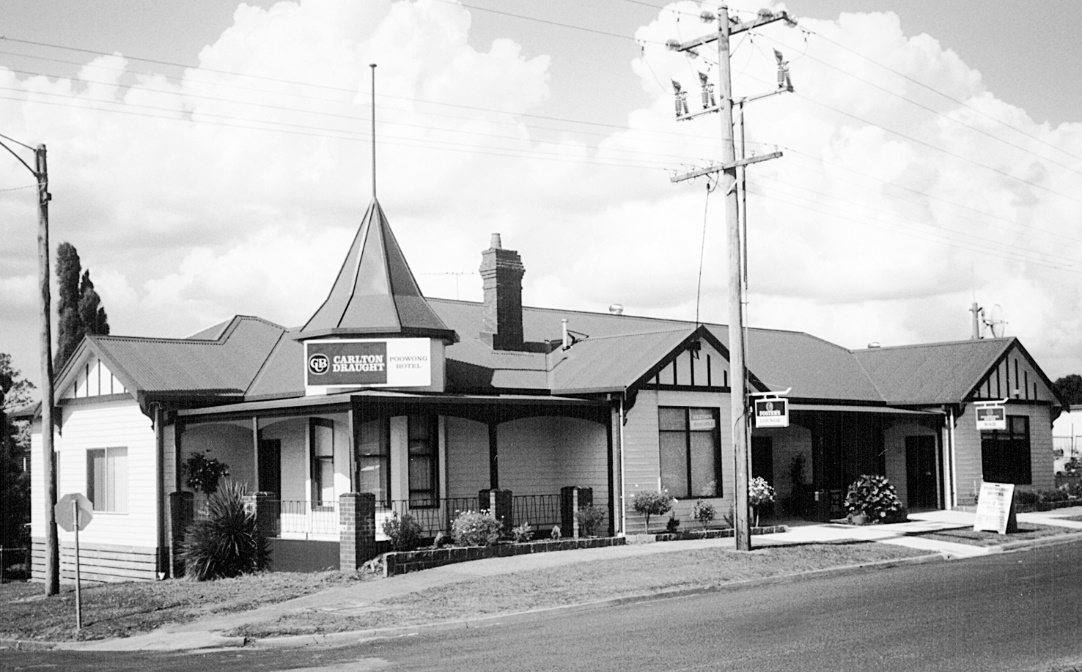
The history of the Poowong Hotel is filled with countless stories, and if its walls could speak, they would undoubtedly share tales of past events, dances, horses being ridden through the bar and the home it once was to a tiger. These stories are a testament to the hotel's enduring presence and the people who have been part of its journey.
The town sits either side of the border of the Parish of Jeetho and the Parish of Poowong. It is said that a public meeting was convened to decide on an official name for the township. Poowong was chosen because the Hotel was already named the Poowong Hotel.
The Poowong Hotel story starts in 1876. James Scott possessed the land at the junction between McDonald’s Track and Ogilvy’s Lane, in Poowong West. Here he constructed a general store, butcher’s shop and a hotel. It was Scott and his large family of boys who promoted the area and raised much of the livestock market that remains prominent in the region today. Two years later, on the 18th of December 1878, when Scott put his businesses up for auction, the pub was moved to its current location.
Records conflict as to whether Scott remained the publican. Some suggest that Scott operated the hotel until 1883 when the hotel burnt down in a fire. During this time, it is believed, Scott’s Hotel, (as it was fondly known as) soon earned a good reputation. Giving relief to pioneers in need of rest and refreshment, its location was praised for one of great convenience. From Scott’s, pioneers could travel slowly east, south or north, deep into what is today known as Gippsland.
Records state that C. Leach was the first proprietor of the then well-known hostelry in the Poowong Township until the 9th of October 1883, in which he paid a grand sum of 80 pound for the land (approximately 2400 AUD today). Mr Leach bought the land from Caleb Burchett (a staunch Methodist), who upon reflection, said that if he’d known the purpose of the land, he would have never sold it.
The license was then transferred to man by the name of Geo Willis who had a wife and family of girls all school age in 1888 on the 9th of October. He remained publican for only two weeks before the license changed hands once again to Gersham Thomas on the 22nd of October 1888. However, Thomas would not stay in the position long with the title moving on once more to a R. Hamilton on the 18th of July 1889. Leach would sell the freehold onward to George Shaw on the 5th of February 1891 and Hamilton would depart. It is during this period sometime that it is believed Thomas built a billiard room ad private parlor for the hotel.
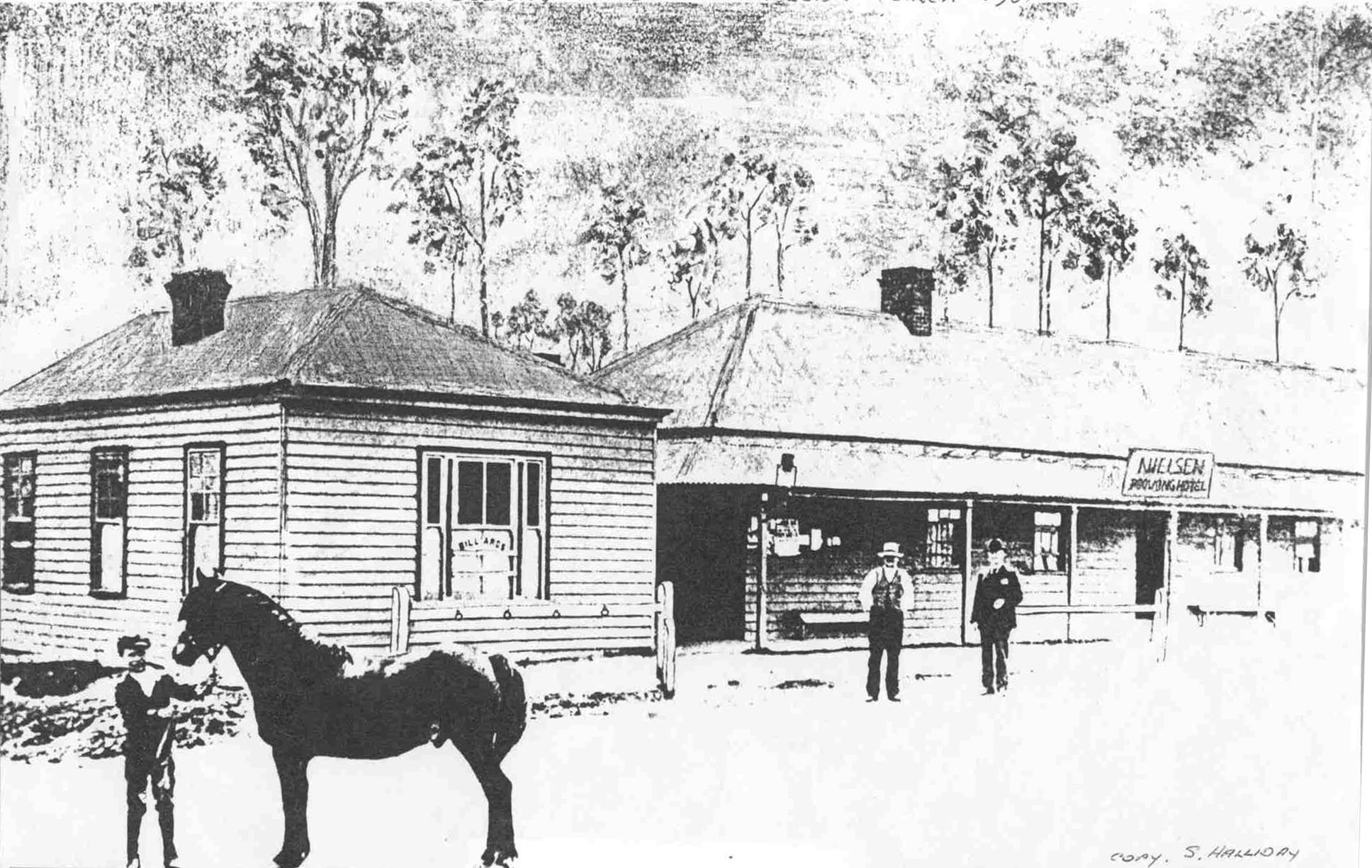
While dates and records don’t appear coherent due to destroyed records and several fires, it is known that after Willis the hotel was run by an ex-constable named Corbett with a strong relationship with his daughter Susan. It is also known that sometime in 1891 the publican at the time, John Neylon, received a 5 pound fine after leaving the bar door open after hours.
Records also show that a gentleman known as Felix Larkin was the publican for 8 years until the property was purchased by the Sweetman’s. Described by as a quiet and well-respected man, Larkin stayed on for a few years after the purchase before resetting his wife and daughters in Korumburra where he would later buy the Austral Hotel.
Mrs. Sweetman came from a wealthy background, owning large stocks in the Walhalla Long Tunnel Gold Mine. Thus, after the old establishment had fallen into disrepair, she began to rebuild the hotel and also work on construction of a number of stables, shops and offices besides the hotel; “begs to inform the numerous patrons of the above well-known hostelry that having entered into possession thereof she intends to carry on everything heretofore, merit and obtain a continuance of the support so liberally extended to her predecessor.” (Mrs. E.L. Sweetman 1898). With the reopening of the hotel on the 6th of June 1906, the town celebrated with a large banquet.
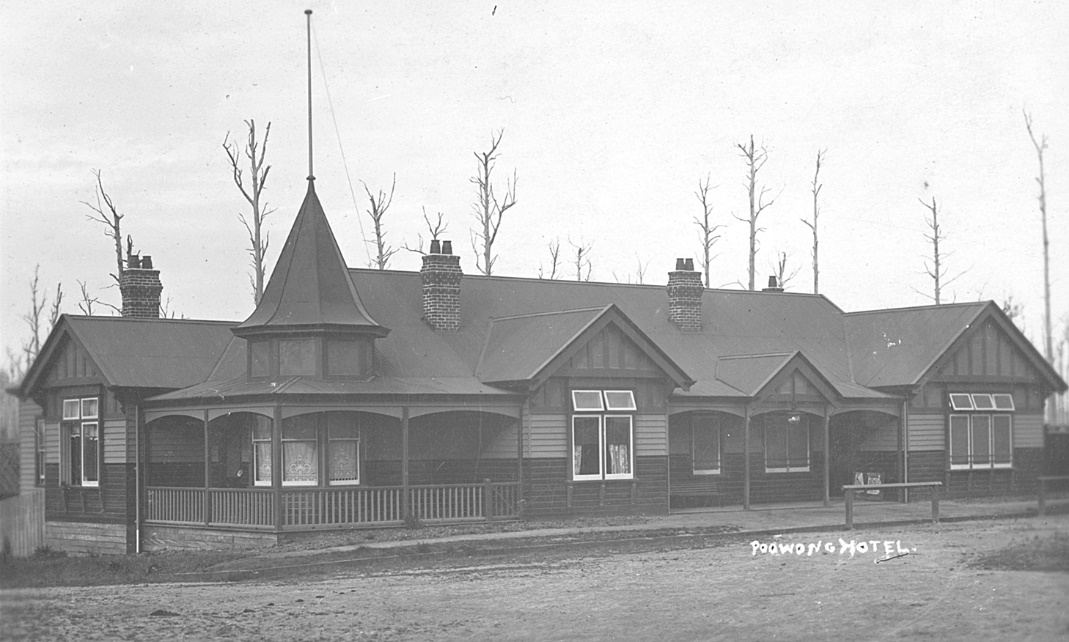
Mrs. Sweetman owned the hotel until her passing on the 15th of November 1923. Her Husband then, Richard Stanley Sweetman became proprietor until the 27th of July 1938 when Adela Mary Dwyer purchased the freehold.
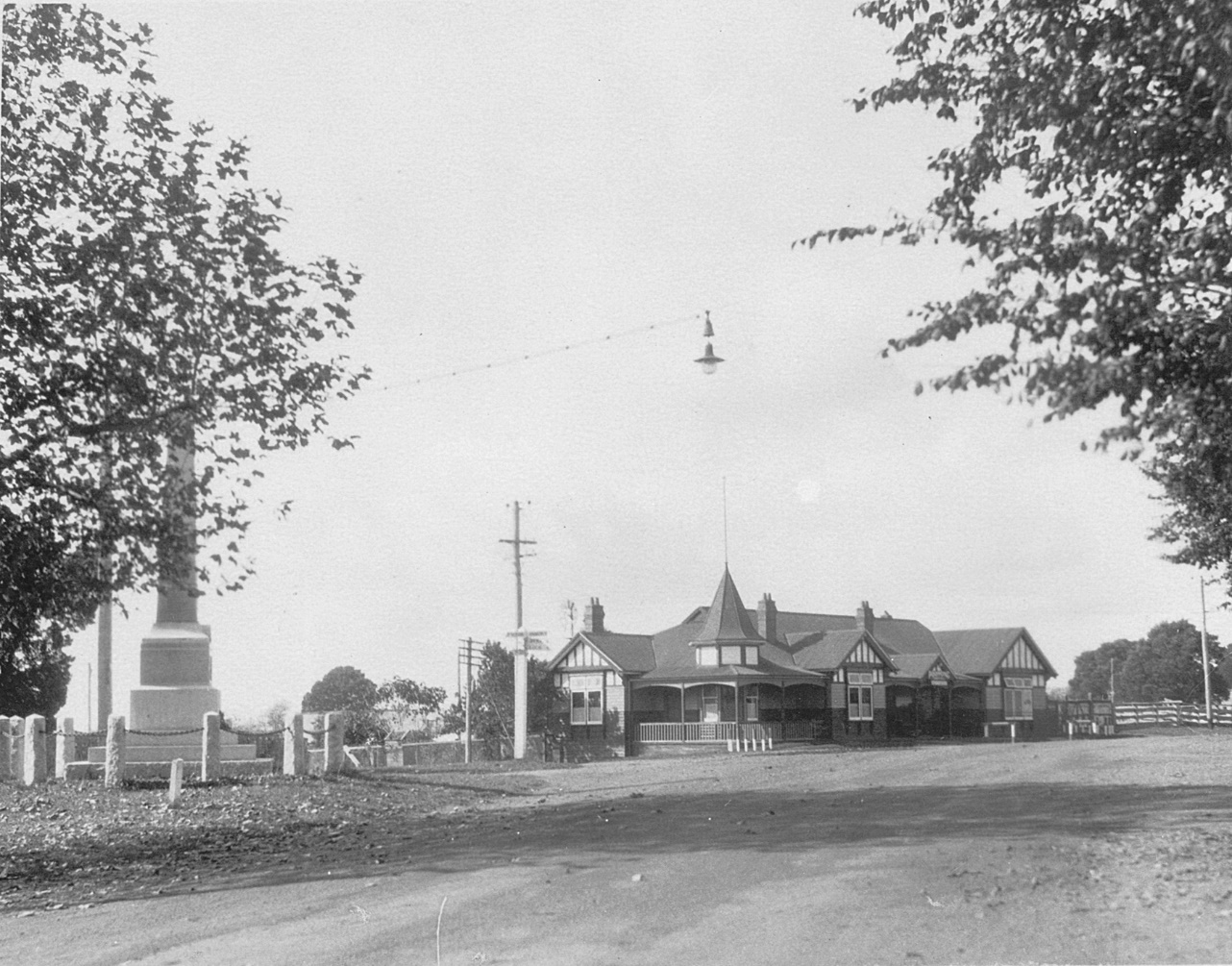
Following Dwyer, the Fitzpatrick family would take on the hotel in 1939 and run the pub for the following 40 years. The Fitzpatrick’s had a strong connection with the Richmond Football Club who often visited Poowong for practice matches during the Fitzpatrick reign. It was during this time that a tiger’s head would even be gifted to the hotel by the club. Today staff and customer’s joke that Adelaide Fitzpatrick continues to haunt the hotel, often making her presence known.
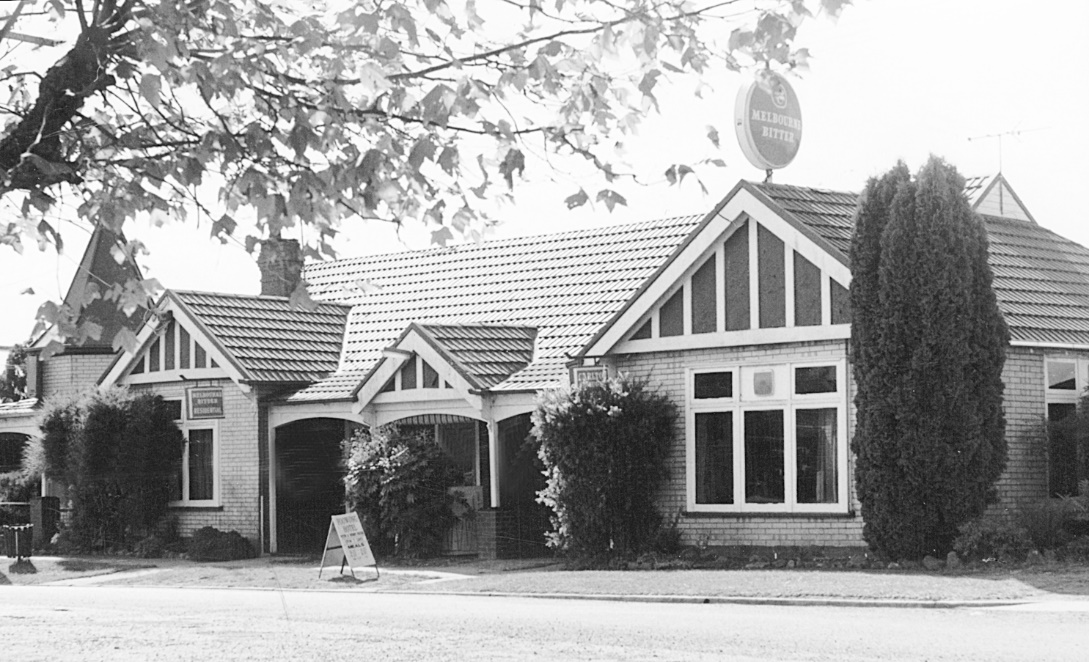
After the Fitzpatrick’s came Hermann Deneen and his wife Robyn who took on the hotel in 1984. Until 1988 there would also be a bevy of publicans to grace the hotel including Rex and Sandra Pearce, Graham (Black) and Sandra Salmon, Phil and Margaret Clarke, Peter Roach, Glenys and John Allison, Keith and Bev Arnold, Les and Glenys Robertson and John Haw.
In 1988, Colin and Helen Lindsay purchased the hotel and became its freehold owners for many years. Throughout their ownership, they hosted numerous publicans and experienced a significant fire incident in 1997. The hotel had not long been refurbished and would not open again until mid 1998.
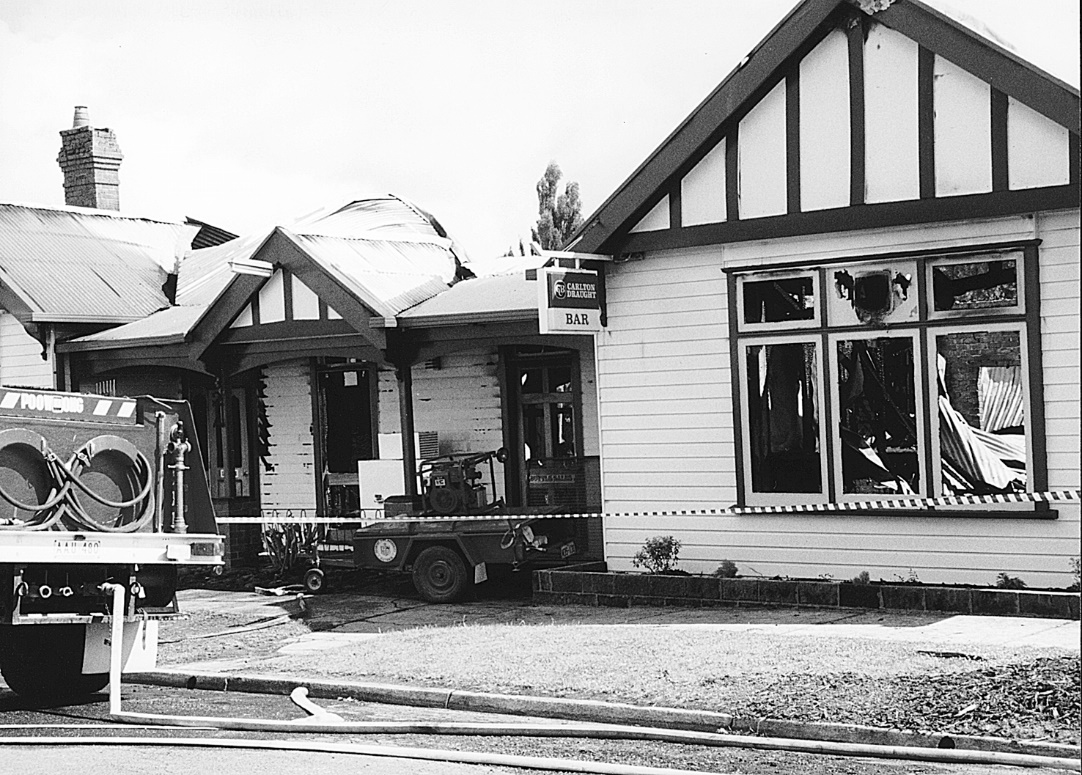
In 2006, Ben Hall and Fiona Cox took on the leasehold. They became custodians of an incredible history of resilience and stoicism for a small town in South Gippsland, that has an amazing history of people that saw potential in an inhospitable region. After 16 years of looking after the Poowong Hotel, they decided to purchase her as their own.
The hotel has also become a popular destination for car clubs, attracting enthusiasts from throughout the region and state. With a variety of car clubs from Studebakers’, MG Cars, Porsche, Peugeot, Holden, Ford, just to name a few, weekends have often found the town filled with an abundance of bright colors from motor history. Fostering a sense of belonging and catering for diverse interests, we have also welcomed countless motorbike groups and even Massey Ferguson Tractor groups.
To explore more of the trail, view the rest of the Poowong History Trail.